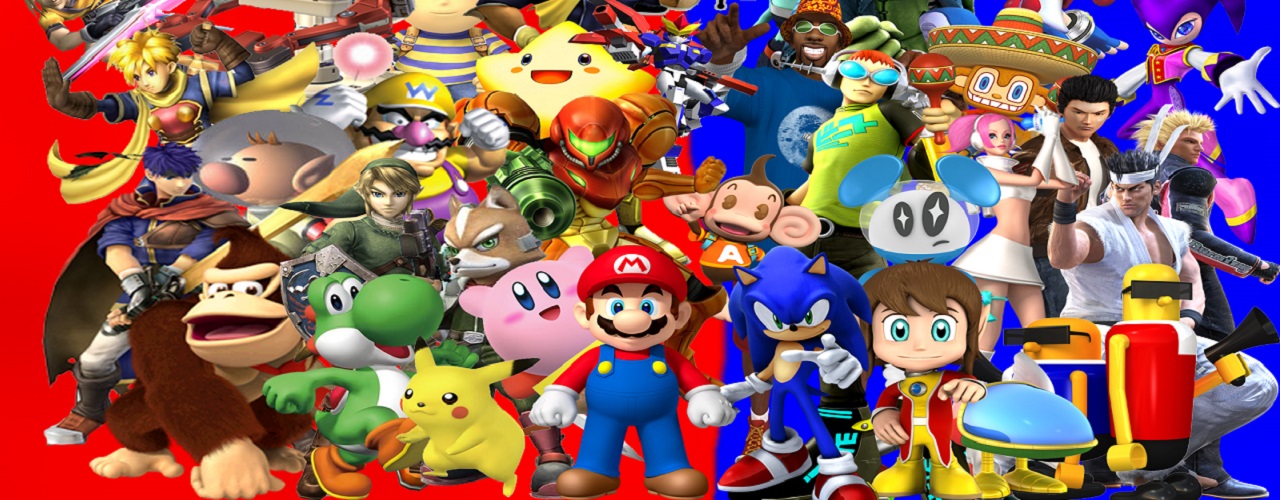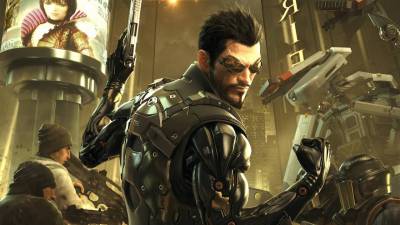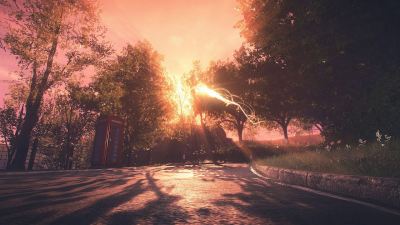Who knew that the pre-E3 week would be this unprecedented with the amount of developer media events showing off what would have historically been reserved for E3. Coupled with the particularly high amount of leaks on social media we are left wondering what else is hidden behind the curtain? In this week’s Big Four we avoid E3 completely, because let’s face, it you’ll be bathing in coverage of it all next week.
Instead, we take a look at some of behind the scenes elements of the industry and how they can change people’s lives.
For those of you who are unaware of the questionable business practices surrounding college athletics in America and the question of monetary compensation, you may also not know that this has had ramifications on the gaming industry as well.
EA Sports recently announced that they will be discontinuing developing and producing their annual NCAA: College Football games, the sister title to the immensely popular Madden franchise. Lawsuits have since sprung up over the use of player likeness and the lack of compensation for such use, generally without their permission. Polygon’s Owen Good recounts a time in his life where he ran into the backwards rules of the NCAA in regards to their players, and how he befriended Eddie Goines. At the time Goines was a star NC Statewide receiver, and the man behind the motion capture for C.J. - one of the main characters in Grand Theft Auto: San Andreas.
With E3 looming on the horizon it has easily started to overshadow an unfortunate trend in the industry: another swell of game developers being made redundant. We hear about it almost weekly now, how both large and small developers alike are letting people go in droves. Earlier this week CCP – makers of EVE: Online – laid off another 49 developers in the wake of the cancellation of their MMO World of Darkness - the second round of redundancies in a month. How could this be happening at such a high rate when the gaming industry is supposedly thriving? Jason Schreier offers answers to these looming questions, and often they make more sense once they are made clear. Anyone who’s worked in politics would know that once the campaign is over, the job is over.
Generally, we try to avoid having two articles in the Big Four from the same major publication; but in the slow editorial week before E3, Polygon published some great articles on the industry. For those of you who are old enough to remember the 90’s, you’ll remember the first major console war. Before Xbox 360 and PlayStation 3 – let’s be honest here, despite attempts at competition, the PlayStation 2 largely went unchallenged – there was Nintendo and Sega, with their Super Nintendo Entertainment System and Sega Genesis systems respectively.
This was a time when the market share was much smaller than it is today, with both gaming giants fighting it out for dominance over the other. This was a story Blake Harris wanted to tell - the tale of what happened behind the scenes of the videogame industry at the dawn of the golden age of gaming. Dave Tach of Polygon interviews Blake Harris about his upcoming book Console Wars, and the soon-to-be movie adaptation by Seth Rogen.
In our review of Threes! this week we pointed out that the game had been the victim of the rampant cloning problem currently plaguing mobile titles. There was Zynga cloning Nimblebit’s Tiny Tower, and Vlambeer Games’ Rami Ismail suffered from a surfeit of clones of his mobile title, Ridiculous Fishing. For a time, Threes! had been obscured by the clone 2048. Fortunately, Threes! has finally received its time in the spotlight; many have realized the injustice done to it. Kyle Vanhemert of Wired magazine discusses why the design of Threes! makes the game a masterpiece and an instant classic that could be played forever. It’s an interesting read, regardless of whether or not you’ve been following the issue.
We hope you take the time out of this E3 week to read through the Big Four, because in so many ways they are related to the trade show. From the troubling story behind the unnamed voices in the industry and those who create what we love finding themselves out of work, to the untold story of console development and scandal between two giants in the industry, and the plight of mobile game developers suffering thanks to an overcrowded and often unscrupulous market. Parallels can easily be drawn between the console war of the 90s to the modern-day PlayStation and Xbox struggle for your hard-earned money. Sega and Nintendo battled against each other for years, ignoring the trends in the industry as they entrenched themselves - and they both, in their own way, paid a heavy price.
Neither side could have foreseen TV manufacturer Sony’s entry into the industry and the dominance of their PlayStation, least of all Nintendo - who had previously worked with the electronics giant to create a cd-based add-on for the SNES (the technology which ultimately formed the first PlayStation).
20 years later, Sega is still reeling from a humiliating downfall, and Nintendo is, at least in the eyes of some, barely treading water with the Wii U. Could the same happen again? While it’s too early to call this generation for either side, there are noticeable parallels when you look back over the history of the industry. While Sony and Microsoft are engaged in a constant game of one-upmanship, could Valve’s Steambox rise up and topple them both? Or could it be the more likely scenario - smart phones and tablets becoming so powerful - both in user base and capability - that they threaten to make the entire home console business irrelevant?
It’s not that big a stretch of the imagination to see the next console cycle being one defined by merely plugging your phone into your TV, hooking up a HDMI controller of your choice, and streaming games straight into your living room. Both Sony and Microsoft know that becoming a home entertainment and social networking hub is the future: Microsoft banked on multimedia applications and the failed Kinect experiment, while Sony will be unveiling Project Morpheus at E3 and the inevitable ushering in of Gaikai game streaming service PlayStation Now, as well as heavily pushing the sharing capabilities of the PS4. Both console manufactures know that they need to carve out a unique experience – one that cannot be replicated at this present time on a smaller device – now before it is too late. Meanwhile, Nintendo struggles to maintain relevance in an increasingly discerning market - despite what is fast becoming a wide library of superlative games for the Wii U.
While next week’s E3 will not break any of the modern consoles, it’s important to their future and the directions they are taking. It will be interesting to see what - if any - plans Nintendo, Microsoft, and Sony have for the future.
As always, here’s to another interesting week. Cheers!
The Big Four
We give them nothing: The punishment of amateurs doing professional work
It was 20 years ago this September, in the sports office of the student newspaper, that my department took one of the stranger phone calls of a four-year career that saw plenty of weirdness. The football team wanted to know if we were paying one of their players.
I forget who answered the phone — it may have been me, it could have been Ted, the assistant sports editor who had a TV production class with Eddie Goines, N.C. State’s all-everything wide receiver. At the beginning of the semester, Ted pitched Eddie the idea of writing a personal column for us in the upcoming football season. All three of us were seniors.
Eddie agreed immediately. He was projected as high as the late first round in the coming NFL draft, and was taking television and writing courses to prepare him for a career in front of the camera — ideally as a commentator if it all worked out in the pros. Eddie’s column was instantly successful. But shortly after the first one saw print, the athletics compliance office was on the line, heavily implying we’d done something wrong by not clearing this with them.
Ultimately we smoothed things out with assurances that Eddie was not paid and did not ask to be paid. We told them he was considered a junior staff writer and those worked for free. We got another lecture about Eddie’s column potentially being an “extra benefit” given on account of his star status, but we blew that off and that was the end of it.
Why Game Developers Keep Getting Laid Off
On a May morning in Rhode Island two years ago, a reporter for the Providence Journal stood outside the doors of 38 Studios, the video game company formed by baseball player Curt Schilling.P
As employees walked into work, the reporter asked if they knew why they weren’t getting paid. For a few 38 staffers, this was news. They weren’t getting paid? Really? Was this some sort of mistake? A clerical error? The end of the world? What the hell was going on?P
Within the next week, Schilling would tell his staff they didn’t have to come into work anymore, and by the end of May, 38 Studios would be gone. Employees all had to find new jobs, while a dejected, bankrupt Schilling found himself entangled in lawsuits that carry on even today.P
Over the past few years, we’ve heard a litany of gloomy stories like that one. THQ going bankrupt. Disney shutting down LucasArts. Major studios like Irrational (BioShock), Junction Point (Epic Mickey), and Team Bondi (L.A. Noire) closing. Waves of layoffs at independent developers big and small. Even mega-publishers like Electronic Arts and Activision regularly downsize, shutting down studios and laying off staff on what seems to be a cyclical basis. EA’s headcount, for example, dropped from 9,300 in March 2013 to 8,300 in March 2014, according to SEC filings, and though we don’t know exactly how many people they hired or fired in the past year, the headlines have been grim.
Why a Sega kid wrote Console Wars for his grandmother based on Game of Thrones
There was no way to know it at the time, but the present Blake Harris’ brother bought him for his birthday in 2010 would alter the course of his life. Again.
Two decades earlier, the Cold War was winding down, but in living rooms across the world, battle lines were drawn between the established superpower’s Super Nintendo, and the feisty upstart, Sega. In those days when cartridges still ruled the world, the Harris sided with Sega. On Blake Harris’ birthday in 2010, his brother presented him with a bit of shiny, black nostalgia: a Sega Genesis.
As he played the console for the first time in 15 or 20 years, memories started flooding back. Inside those memories were unanswered questions about the first big console war between the 16-bit rivals.
He was an adult now, and he wanted to attend to those unanswered questions. But when he went to bookstores, he couldn’t find it on the shelves. Sure, there were books like David Sheff’s Game Over: How Nintendo Conquered The World, but just as the story was just about to get to take another interesting turn, it ended.
So Blake Harris, a writer at heart who spent his post-college career trading commodities in Manhattan, decided to write the book he couldn’t find.
During the next three years, he’d interview current and former executives at Sega and Nintendo. His research would produce a book, Console Wars: Sega, Nintendo and the battle that defined a generation, a documentary and, with the help of Seth Rogen, a movie based on the book.
Design Is Why 2048 Sucks, and Threes Is a Masterpiece
It’s hard to overstate just how good Threes! really is. Touch Arcade’s review deemed it a “perfect mobile game.” Ken Wong, the lead designer of the Escherian insta-classic Monument Valley said Threes!, ostensibly a rival for mobile mindshare, was “one of the most elegantly designed games since Tetris.” Indeed, its central mechanic–sliding like-numbered tiles together to create higher-numbered tiles–is so utterly simple and exquisitely satisfying it seems like the type of thing that doesn’t get invented so much as discovered. Like one stormy night, a cloistered indie dev woke up with a start, grabbed a notebook, and scribbled furiously until there it was, in completely and flawlessly formed.
That’s not exactly how it went.
At various points in its development, the simple number puzzler included holes, flags, planets, atoms and arrows. For months it was bedecked in argyle, like your grandpa’s favorite socks. A monster known as the “argoyle” featured prominently. In fact, a whole menagerie of beasts were developed for Threes, drawn and redrawn over the course of months. None of them made the cut. Even the central game mechanic changed dramatically, months into development.
After all of that work, it took some other developers all of an afternoon, give or take a few afternoons, to rip Threes off. One of those derivative games, 2048, all but eclipsed Threes, even though it borrowed only the superficial joys of the original while ignoring much of what makes it truly great.
The fact is, the simple magic of Threes came not from a lightning bolt of inspiration but rather a slow, steady grind. In the year-and-change it took to make, new features were added and iterated upon tirelessly, only to be scrapped. The developers had to kill their darlings, as the saying goes.
Visual Stimulation
What Is E3?
Is the First Person Shooter Dying or Evolving?
Soundtrack of the Week – Hotline Miami
What if GTA V was on the Commodore 64?
Extra Study Material
It has become rather popular to question the relevancy of E3 and the over bloated hype machine associated with it. And while the show may be a lot of things it’s also the biggest mainstream event in gaming every year. Ben Kuchera makes his case for the whale of a show’s existence. “E3 is loud, expensive, sexist and violent: It’s also the only place to be next week”
Steam has largely enjoyed its PC gaming marketplace monopoly unchallenged, but as Nathan Grayson of TMI points out Good Old Games is rising up to challenge the behemoth in what could only be good for you the consumer. “Thank Goodness There’s Finally A Real Threat To Steam”
Here is a great read by the AV Club team about their gateway games into other games. Everyone has a game that started it all. “Do you have “gateway games” that make you want to play other games?”
Most of the AAA titles teased at last year’s E3 have been pushed back until 2015, and Batman: Arkham Knight is only the latest to be hit with delays. Paul Tassi of Forbes wonders what if anything he will buy this holiday season. “’Batman: Arkham Knight’ Is The Latest Blockbuster Game Delayed To 2015”
Frame rates and resolution have become a hot button topic for fans when discussing the Xbox One and PlayStation 4 with some saying that they don’t matter. Samit Sarkar lets us know why they do matter to both the industry and fans. “Why frame rate and resolution matter: A graphics primer”
EVE online is a big and daunting world with a large barrier to entry for novice players, and yet the game has continual and sustained growth for its entire existence. Rich Staton of Rock. Paper. Shotgun. did a great article on the direction EVE‘s developer CCP is taking for the future of their historic game. “Forging Frontiers: EVE’s Future”
Hotline Miami has been criticized for its high amounts ultra-violence, that it is just another mindless killing game with no rhyme or reason behind the murders. We hinted at this controversy in our review earlier this week, and Rami Ismail takes a look at how the game is actually a critique of violence in videogames, and player responsibility for their actions. “Why Hotline Miami is an important game”



